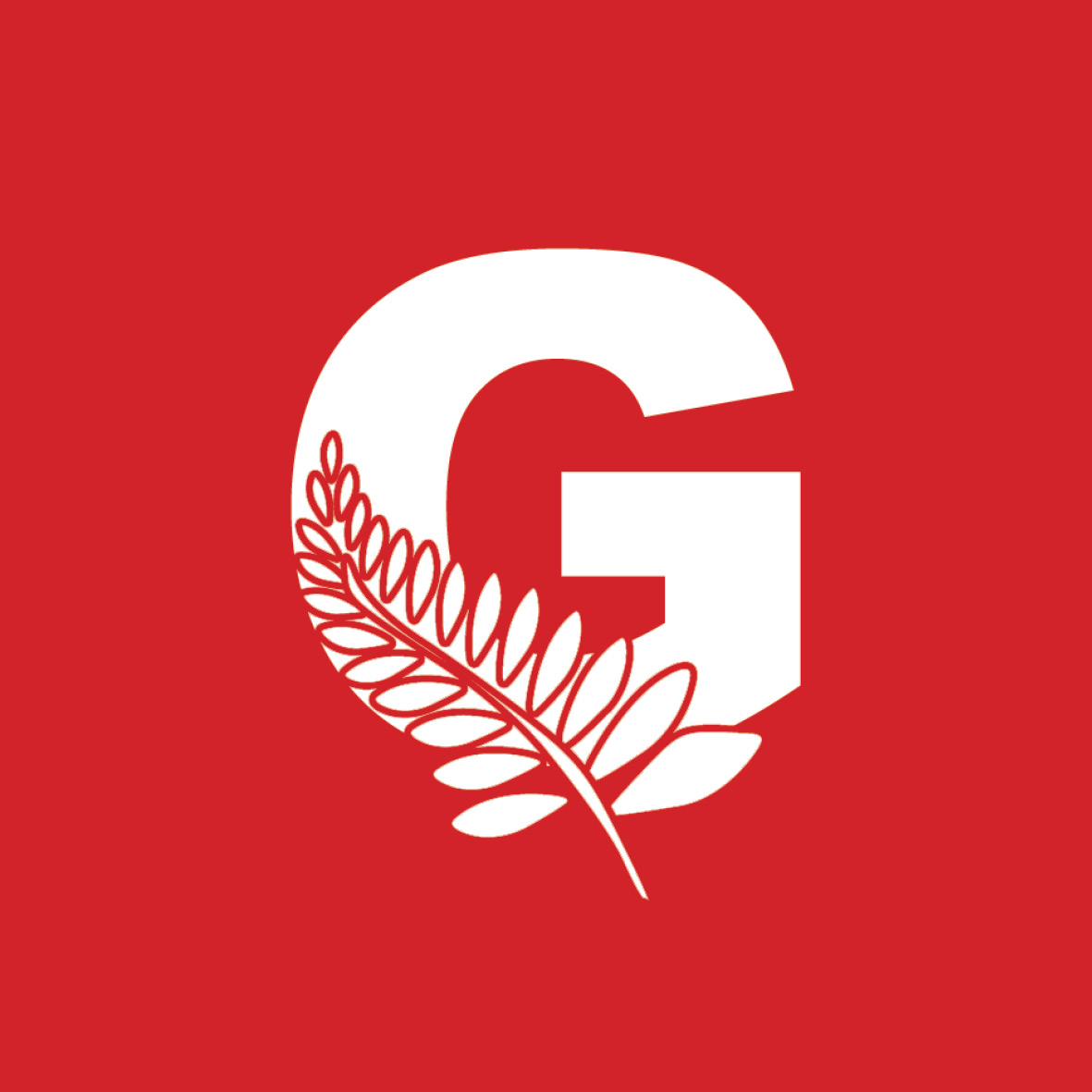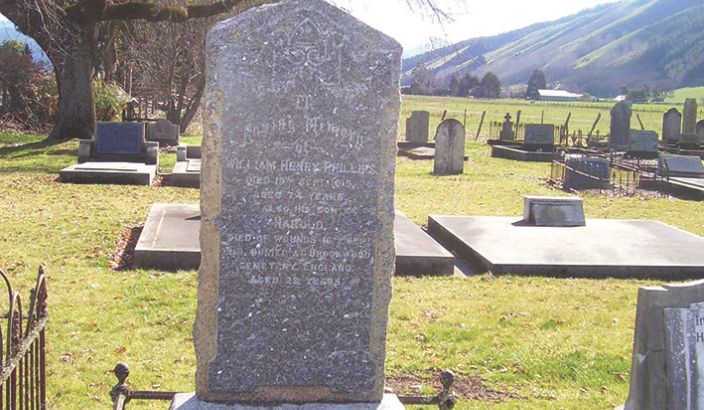A life well lived for William


W.H. Phillips' headstone, Marawera. Photo: Supplied.
William Henry Phillips was born in Cornwall in 1845. In 1849 his father William Snr left his young son in England to complete his education but took the rest of the family - his wife and two daughters Betsy and Annie, to Australia.
In 1858, William Jnr followed the family to Australia, living at Castlemaine and Bendigo before heading to New Zealand in 1861 with his parents and siblings, aboard the Emperess of the Seas to mine at Gabriels Gully at the time of the gold rush.
Shortly afterwards, he moved to Nelson and was one of the early diggers at the Wakamarina, where he joined George Moonlight’s prospecting band, having known the men from Victoria. The party was quite successful in this endeavour, and in 1862 William joined Thomas Sayle prospecting in the Tadmor district and found gold in good quantities in the Sherry. Meanwhile, his father had settled on a property at Tadmor where he established a store and pub.
Around 1867, William Jnr was living in Greymouth where he had a store.
Unfortunately, this was destroyed a couple of years later by a fire, resulting in a total loss.
In 1869 he moved to take up land at Sherry River and another accommodation house and store was built that year. With a lot of hard work, William Jnr developed the land to farm sheep and cattle, and in February 1873 he married 17-year-old Mary Chattock, daughter of Richard Chattock at Brightwater. The happy occasion of their first child took place in October of the same year and three years later, son William was born.
Sadly, Mary passed away in 1877, leaving William Jnr with two very young children. It was six years later that he married again to Ada Hannah Hunt of Wakefield, daughter of William and Sophia.
Several children followed to complete the family - John 1884, Katherine 1885, Helen 1887, Harold 1889 and May 1892.
William Jnr was a busy man, farmer, storekeeper and publican as well as being heavily involved in local affairs. Back in 1878, he was appointed as a Justice of the Peace, but not without some opposition. It was suggested that it was not appropriate for a publican, who would sell liquor to a man then sit in judgement on a charge of being drunk and incapable.
For 13 years William Jnr was chairman of the old Upper Moutere Road Board and represented his riding on the Waimea County Council for around the same period. He had a keen interest in educational matters, serving for many years as a school committee man and around 20 years as a member of the Nelson Education Board.
In 1890 he unsuccessfully ran for Parliament. He was a member of the Masonic fraternity, a member of the Nelson Bowling Club for many years, and also played cricket in his earlier years. In his later years William was still playing his part for the community and wider district. His health began to deteriorate and he passed away on 19 September 1919.
